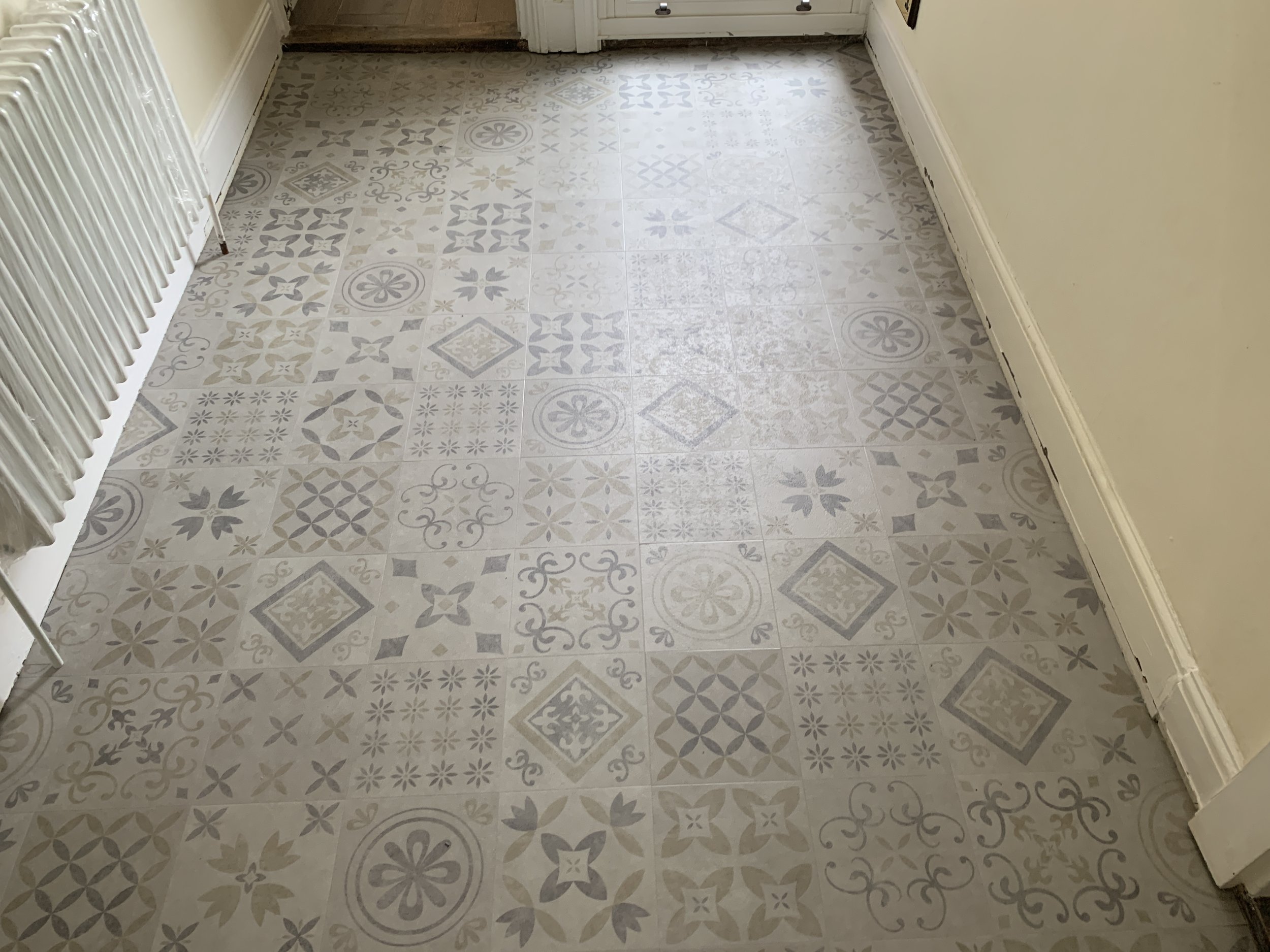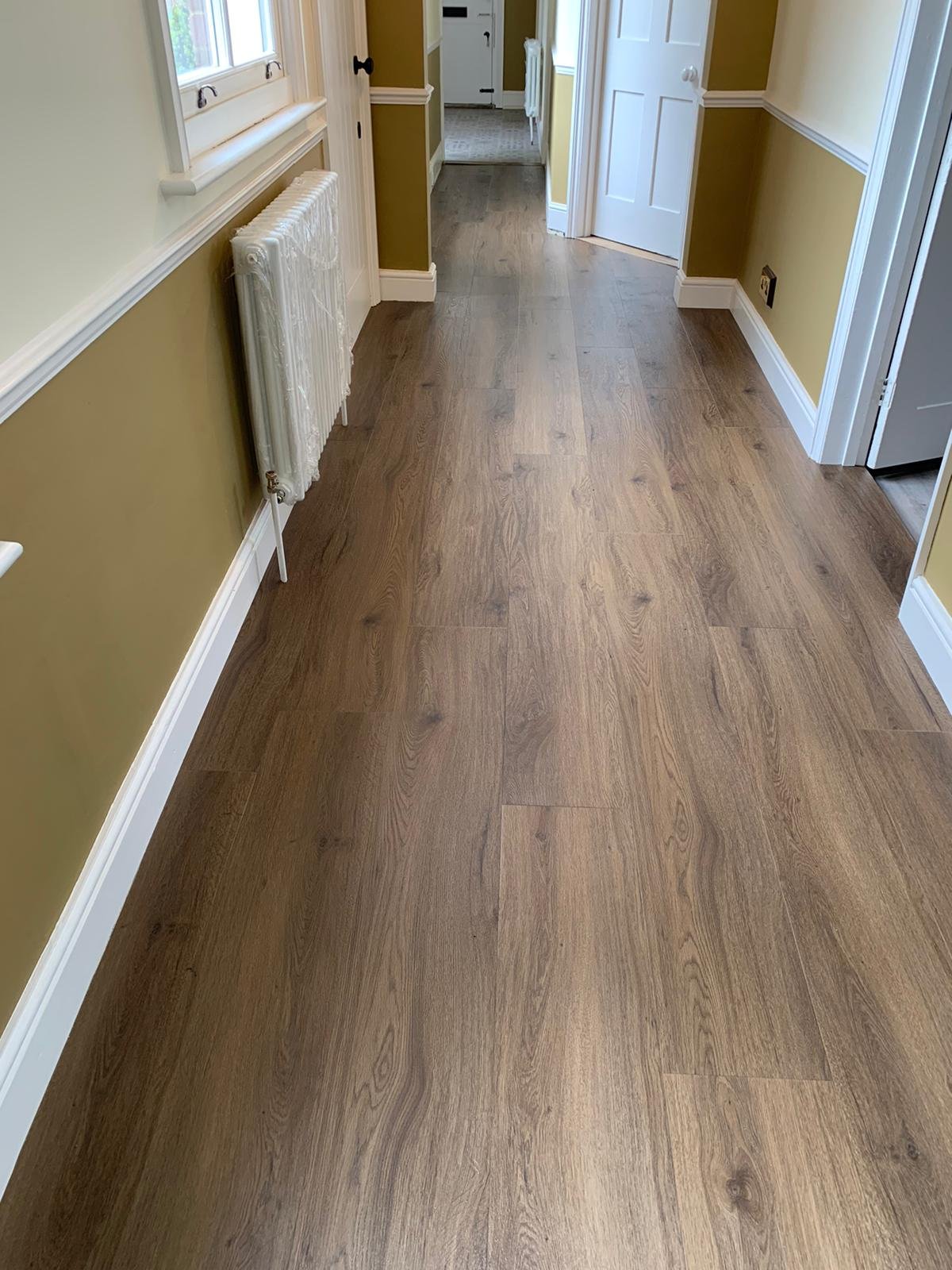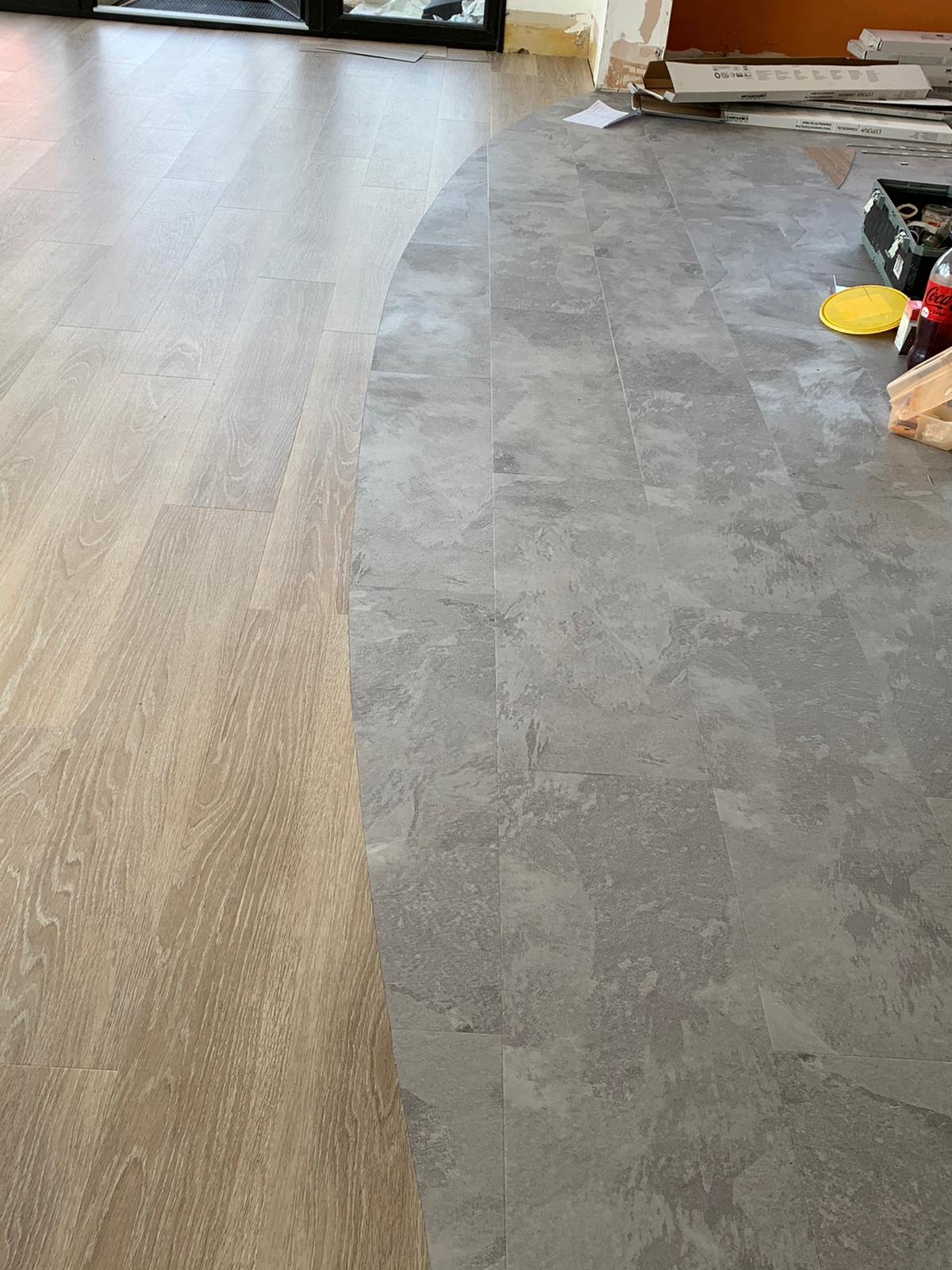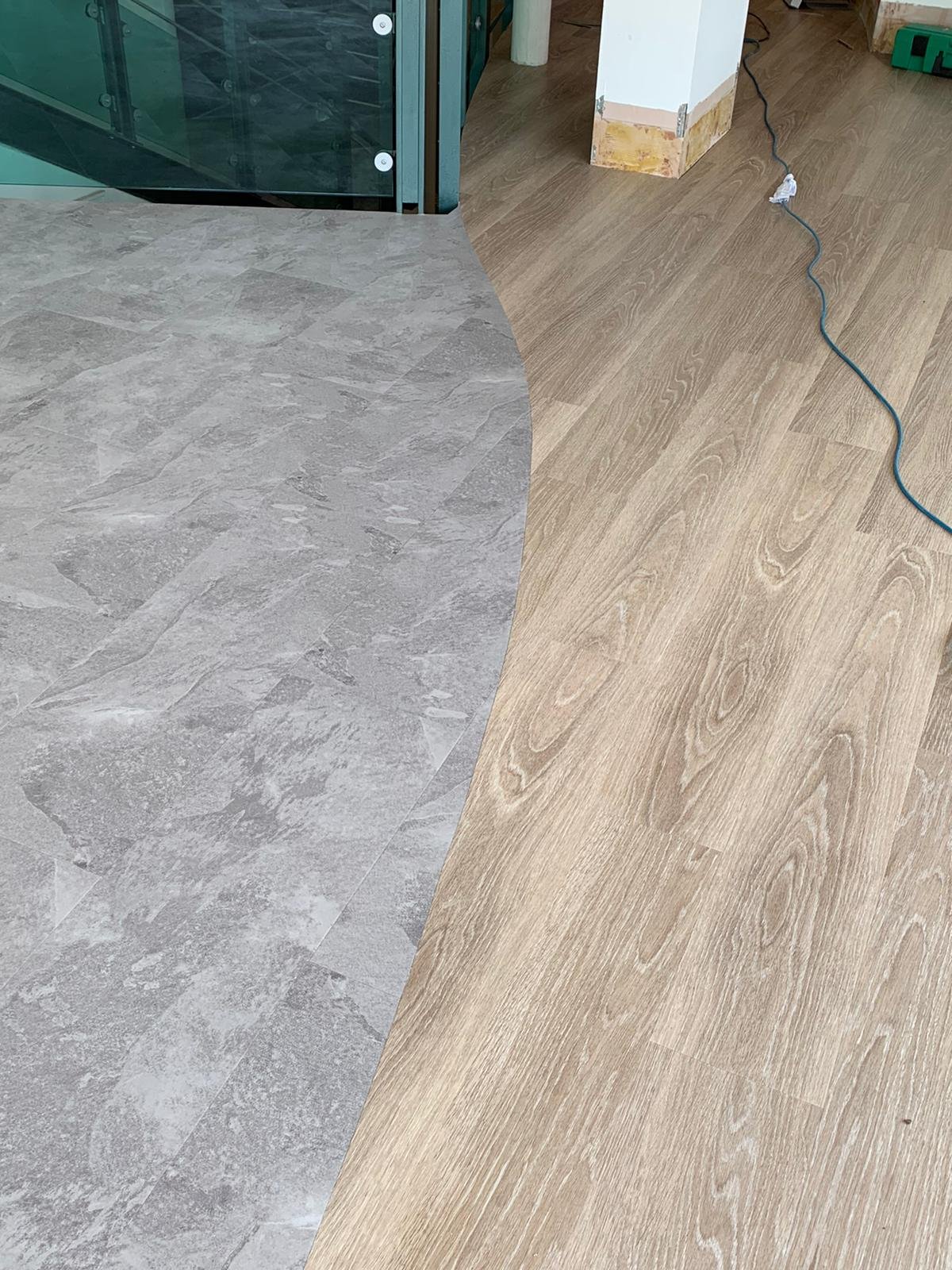Luxury Vinyl Tile (LVT) Explained
Written by
Jack Williams, owner of Crescent Flooring
Published
July 24th, 2023
When it comes to flooring, the choices available can feel overwhelming. There's a multitude of materials, each with their own unique benefits and drawbacks. One type that's been gaining a lot of attention lately is Luxury Vinyl Tile, or LVT. If you're considering a flooring overhaul, understanding the nuances of this versatile option might just tip the scales in its favour.
What is LVT?
Luxury Vinyl Tile (LVT) is a modern version of vinyl flooring, a product known for its affordability and durability. What sets LVT apart from traditional vinyl flooring is its ability to mimic the look of natural materials like stone or wood to an almost indistinguishable degree. Furthermore, LVT's enhanced manufacturing process provides a more realistic texture and durability compared to its traditional counterpart.
LVT is made up of multiple layers, including a protective top layer, a printed design layer, a vinyl core, and a backing layer. This multilayer construction contributes to its durability and design versatility, making it a popular choice for both residential and commercial properties.
Just like other flooring options, LVT comes in several forms, each with its unique installation process and features:
Glue Down LVT. As the name suggests, glue down LVT involves using adhesive to secure the tiles to the subfloor. This type of LVT is exceptionally durable and stable, making it an excellent choice for high-traffic areas.
Floating LVT (Interlocking). Floating LVT uses an interlocking system, similar to laminate flooring, which allows the tiles to be clicked together without the need for adhesive. This installation method is faster and less messy than the glue-down method, and it also allows for easy replacement of individual tiles if needed.
Self-Adhesive LVT. The self-adhesive LVT comes with pre-applied adhesive on the back of each tile, allowing for quick and easy installation. While this type of LVT is user-friendly and ideal for DIY projects, it may not be as durable as its counterparts in high-traffic or moisture-prone areas.
Like any other flooring material, LVT comes with its own set of pros and cons that are worth considering.
Advantages of LVT
Durability: Thanks to its layered construction, LVT is highly durable and resistant to scratches, dents, and stains.
Versatility: LVT can mimic a wide array of natural materials, giving you a lot of design flexibility. Whether you prefer a hardwood, stone, or ceramic look, there's likely an LVT design that matches your preference.
Maintenance: LVT is easy to clean and doesn't require any special maintenance routines. Regular sweeping and occasional mopping are all you need to keep your LVT floor looking pristine.
Variety of Designs: With LVT, the design possibilities are virtually limitless. From different colours, patterns, and textures, you can find an LVT that perfectly fits your design vision.
Disadvantages of LVT
Cost: LVT can be more expensive than traditional vinyl flooring. However, considering its durability and appearance, many find the cost justified.
Difficult to Repair: While individual tiles can be replaced, repairs can be challenging if the damage extends to multiple tiles or if the specific design has been discontinued.
Subfloor Preparation: The subfloor needs to be perfectly flat and clean for LVT installation, which can add time and cost to the project.
Environmental Concerns: As a petroleum-based product, LVT's manufacturing process and disposal can have environmental impacts. However, many manufacturers are now taking steps to reduce their environmental footprint.
See examples of our LVT flooring projects
Below is a small selection of the LVT flooring projects we’ve completed.




Luxury Vinyl Tile (LVT) FAQs
Q: How durable is LVT?
A: LVT is known for its high durability. It is resistant to scratches, dents, and stains, making it an excellent choice for high-traffic areas.
Q: Is LVT water-resistant?
A: Yes, LVT is highly water-resistant, which makes it a suitable flooring option for rooms prone to moisture, such as kitchens or bathrooms.
Q: Can LVT be used with underfloor heating?
A: Most LVT is compatible with underfloor heating, but it's always best to check with the manufacturer or supplier to confirm.
Q: How do I clean and maintain LVT?
A: LVT is easy to maintain. Regular sweeping and mopping are usually sufficient to keep it clean. For deeper cleaning, use a mild, pH-neutral floor cleaner suitable for vinyl flooring.
Q: How long does LVT flooring last?
A: With proper care and maintenance, LVT flooring can last between 10 to 20 years, depending on the quality of the product and the amount of foot traffic it endures.
Q: Can LVT be installed over existing flooring?
A: Yes, in most cases, LVT can be installed over existing hard flooring, provided it is flat, clean, and well adhered. It's always best to consult with a flooring professional to ensure optimal installation conditions.
Q: Does LVT flooring scratch easily?
A: LVT flooring is designed to be resistant to scratches and scuffs. However, like any flooring, it can get scratched under harsh conditions or if sharp objects are dragged across its surface.
Q: Is LVT flooring eco-friendly?
A: The eco-friendliness of LVT flooring can vary by manufacturer. Some brands use recycled materials in their products and employ manufacturing processes designed to minimize environmental impact. It's important to research individual brands if eco-friendliness is a priority for you.
Q: Can LVT flooring be repaired if damaged?
A: Yes, if a plank or tile of LVT flooring becomes damaged, it can usually be replaced without having to redo the entire floor. This is one of the advantages of LVT’s modular design.
Interested in LVT flooring?
If you’d like a free, no-obligation quote for your own flooring project, click the button below and fill in our contact form. We’ll be in touch within 48-hours.
If you’d prefer, you can also email jack@crescentflooring.co.uk or call 07814 410413.
